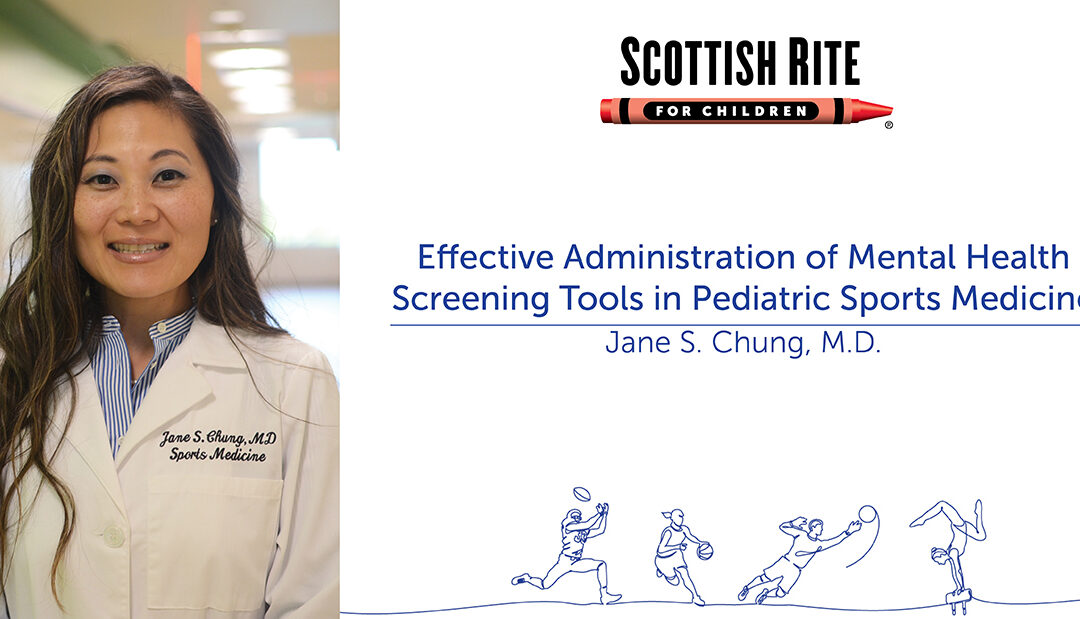
Sports Medicine and Psychology Experts Work Together – Caring for the Whole Child
Our Sports Medicine team noticed that a commonly used outpatient depression screening questionnaire was identifying more patients than were actually at risk for concerns for suicide. This created an excessive number of alerts to the clinical team to assess patients that were not at risk, which is called a high false positive rate. The team implemented changes to reduce that rate without missing those patients that were truly at risk and needed further evaluation.
Jane S. Chung, M.D., sports medicine physician, says, “Suicide is now the second leading cause of death among young people 10-24 years of age, and is a serious public health problem in our youth. Often, in the sports medicine setting, these kids who are hurting and struggling internally are the ones coming in to see you for sports-related injuries and other musculoskeletal ailments,” says Chung. “Our team felt it was important to look into this trend in our own outpatient clinics to come up with a strategy to best identify those patients at risk so we can provide early intervention, as early identification and intervention is key in helping these youth at risk.” Success with the effort would allow resources to be properly allocated to the right patients.
Partnering with the Psychology and Research teams, the group developed a new strategy to decrease the high false positive rate in screening questionnaires utilizing a staged process in the electronic medical record. Additionally, patients were given the opportunity to review their responses before submitting, as often young patients can misread or answer a question too quickly on the iPad questionnaires. The clinical staff was then notified of those patients who provided responses that were concerning for suicide risk.
Recently, in March 2020, the team implemented a more pointed suicide screening questionnaire with hopes that future analysis will show continued improvement in identifying those youth at risk. The staged approach effectively identified patients in need of intervention and the false positive rate drastically improved. Researcher, Connor Carpenter says, “Quality improvement projects like this one have a real impact on our patients and our system. When patients get treatment they need and not the treatment they do not, everyone wins.”
This study, “Effective Administration of Mental Health Screening Tools Affects Appropriate Allocation of Resources and Improves Clinician Ability to Identify Those at Risk for Suicide,” was shared as a medical poster at the 2020 virtual annual meeting of the American Academy of Pediatrics.
Learn more about mental health in young athletes in a previous article.




